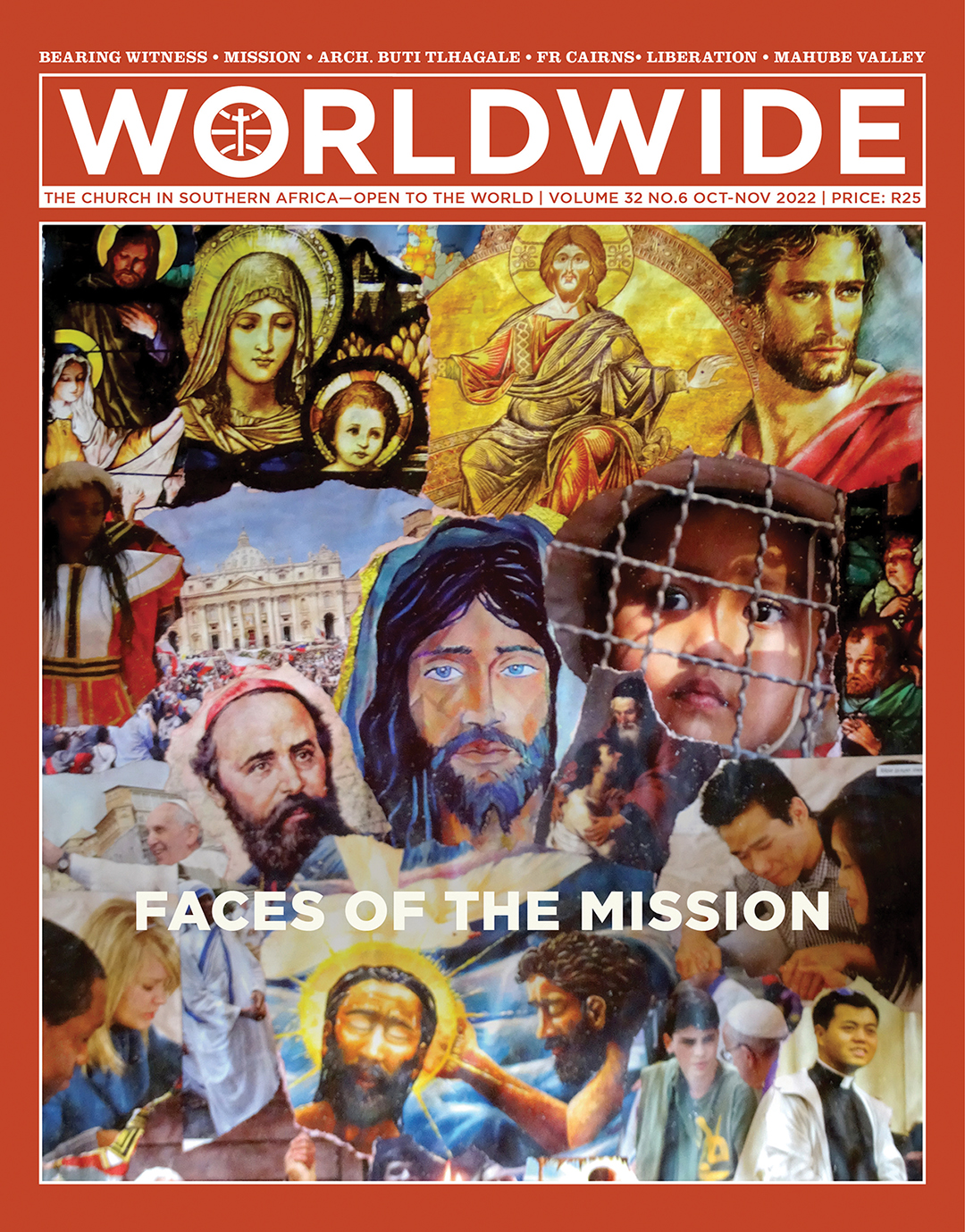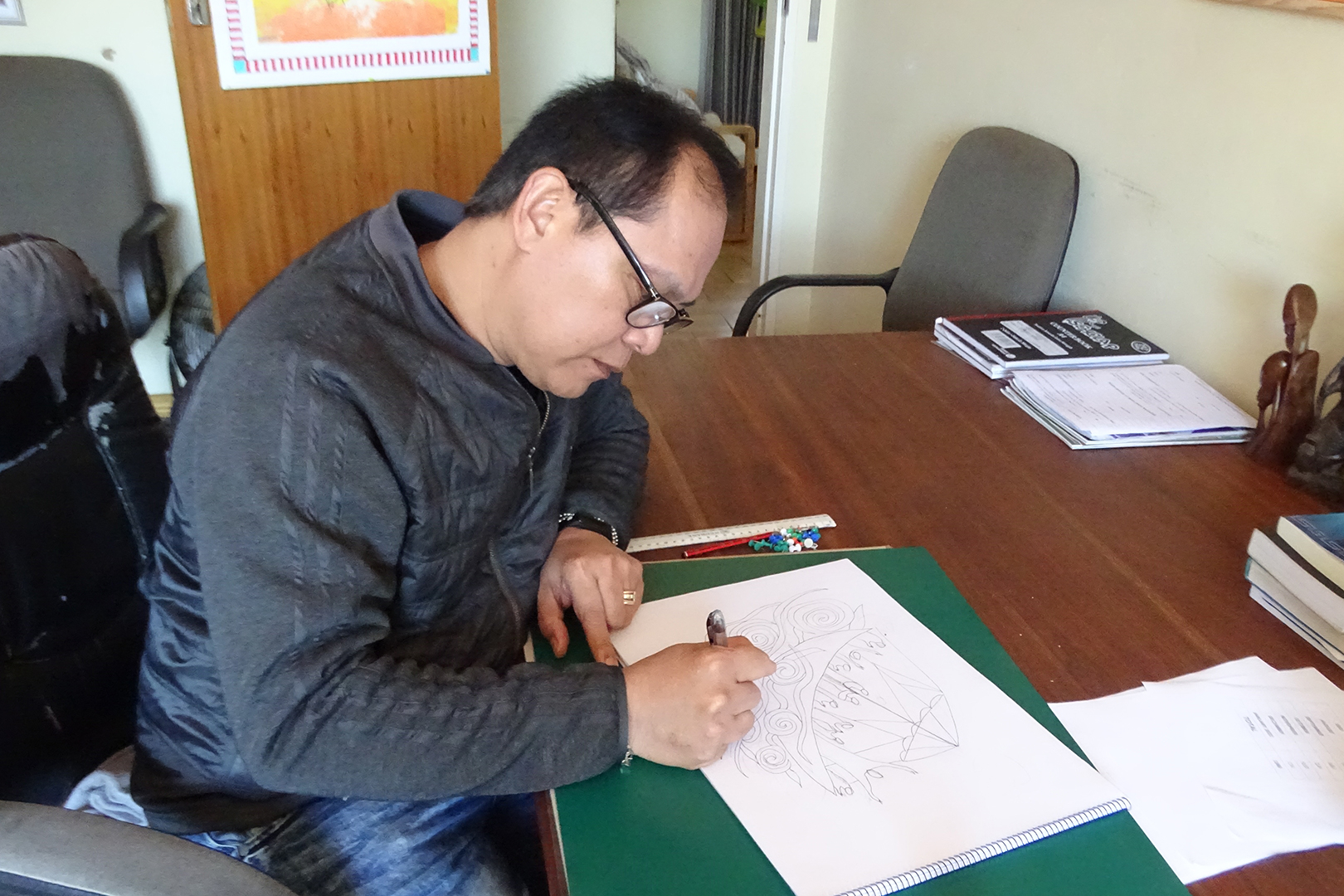FRONTIERS • MAHUBE VALLEY
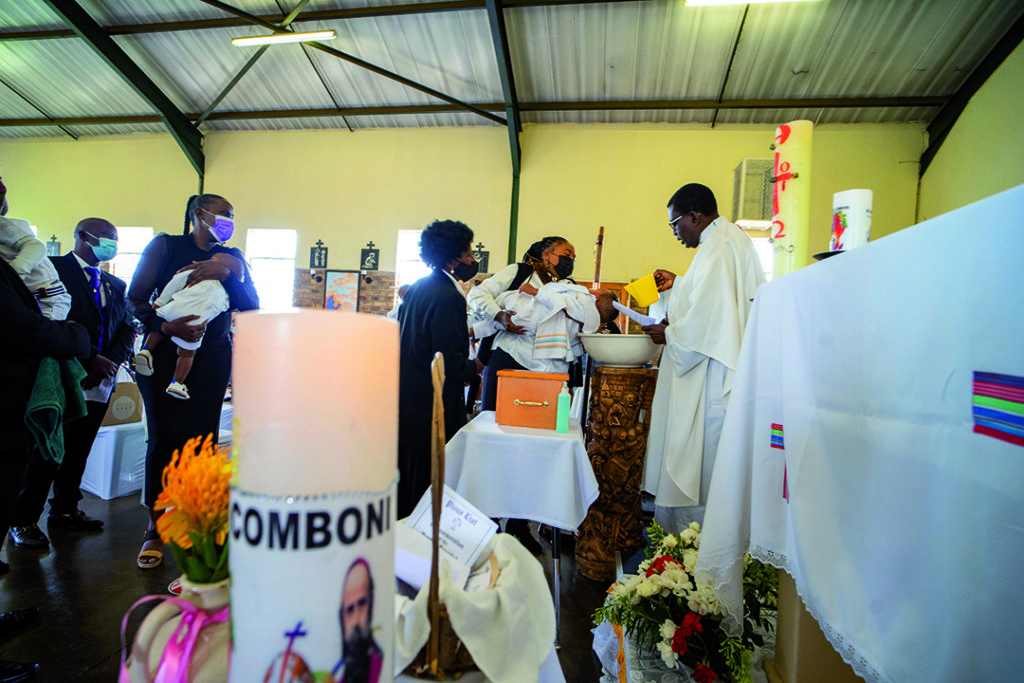
Credit: Jose Luis Silvan Sen/Mundo Negro.
A Comboni family in the mother of melodies
Mahube Valley is one of the most recent pastoral commitments of the Comboni Missionaries in South Africa. The presence of a priest, a brother and a community of sisters working together makes it quite special
BY Rafael Armada | MCCJ
“WHEN I sing, I feel like I’m in heaven.” Jacob Mahlangu is not exaggerating. He is a member of the Izwi le temba (voices of hope, in isiZulu) choir of St Daniel Comboni, in Mahube Valley. The parish, run by a community of Comboni Missionaries, is located in the eastern part of Mamelodi, a name that means, mother of melodies, because of the concentration of musical talent offered by its inhabitants.
Mamelodi, north-east of Pretoria, is a township created in 1953 to relocate the African population during the Apartheid era. Ten years ago, it had a population of 334 000, but now it is probably more than half a million. It is a dormitory town, with many middle-class workers, government and private sector employees who commute daily to Pretoria or any other nearby towns. “During the day, only retired people stay at home, because children also go to school,” says Fr Jerome Anakese, hailing from the Democratic Republic of Congo, parish priest for the past year. He previously worked in the rural mission of Glen Cowie, Mpumalanga. “Many of the unemployed live in informal settlements. At night, especially in winter, there is a smell of smoke. They collect wood or, if they can, they buy it, to heat themselves outside their tiny shacks. There is a tremendous social imbalance”.
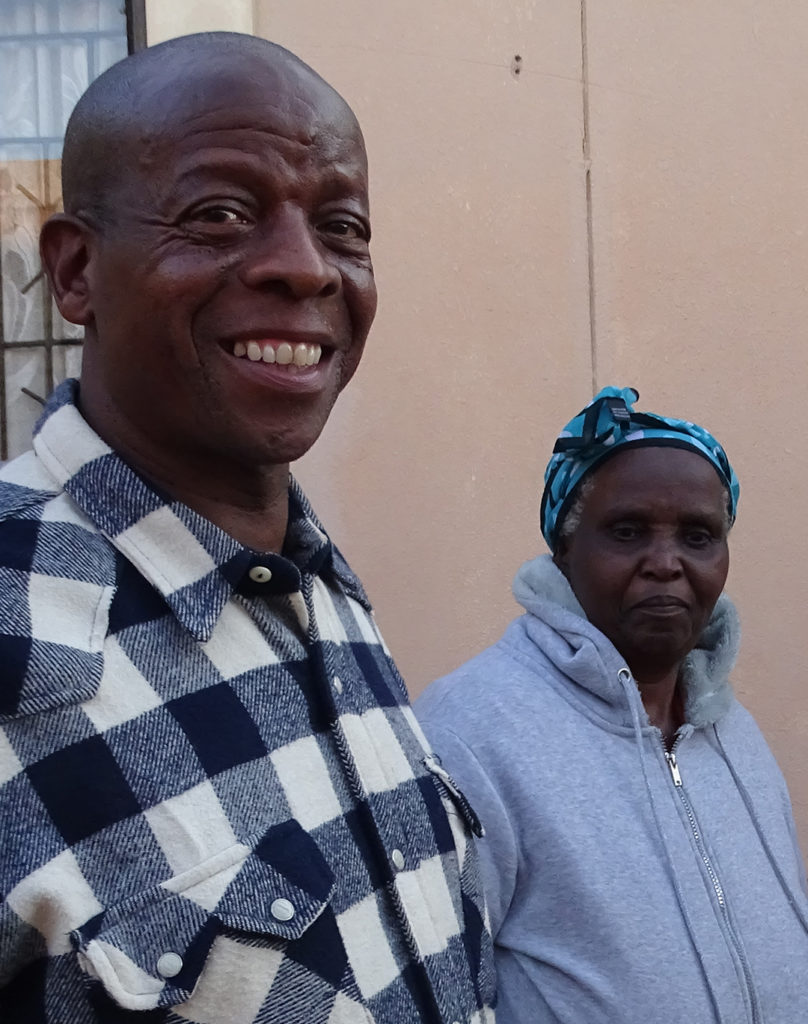
The number of those collecting garbage for recycling grows every day. “They do a hard and undignified work, pushing heavy bales on carts through the streets. They are left to their own fate, without any protection,” says the Comboni Missionary, who wishes in the near future to engage with them. “Those unemployed try their luck in the informal economy, selling on the streets, driving taxis or recruiting clients for them. They intend to emulate their working neighbours who drive private cars through the streets of Mamelodi. Others, unfortunately, turn to crime or to drink,” says Fr Jerome. The insecurity “is a consequence of social contrasts and high levels of unemployment”.
The beginnings
Mahlangu arrived in Mamelodi in 1965. The police, at that time, forcibly removed him, together with his family, from his home in Garsfontein, southeast of Pretoria, when that area was declared a residential zone only for whites. Mahlangu was then seven years old. “They came with guns and took us to Mamelodi. We didn’t know anything, but maybe our parents did. The government knew where they were going to place us because our new house was already built when we arrived.”
“People are very welcoming and about 200 attend Mass every Sunday”, says Fr Jerome
“They placed us in Emasangweni (at the gates’, in isiZulu), says Teresa Chimeloane who was also taken there, a year later, in 1966. She was a teenager at the time. “My parents worked in Ga Rankuwa, north of Pretoria. I lived with my grandparents. From a Catholic family, she began living her faith, like Mahlangu, at St Gerard’s Mission, in Garsfontein. When they were relocated in Emasangweni, there was no Catholic community formed yet. “We were all new and we started to know each other. My grandparents and others began to gather in the evenings to pray by the dump site of the slum. Each one carried their own chair. Every day a new family joined; some weren’t even Catholic.” Then, they thought of asking for a classroom at Zakele, the nearby primary school. “The neighbouring parish, St Raphael’s, was far from our home. The elders used to tell us: ‘When you come back from school, if you see bricks lying in the street, pick them up and bring them; we want to build a church’. That’s what we did and that’s how St Peter Claver was born”. It was in that parish that Teresa began, like Mahlangu, to sing in the choir.
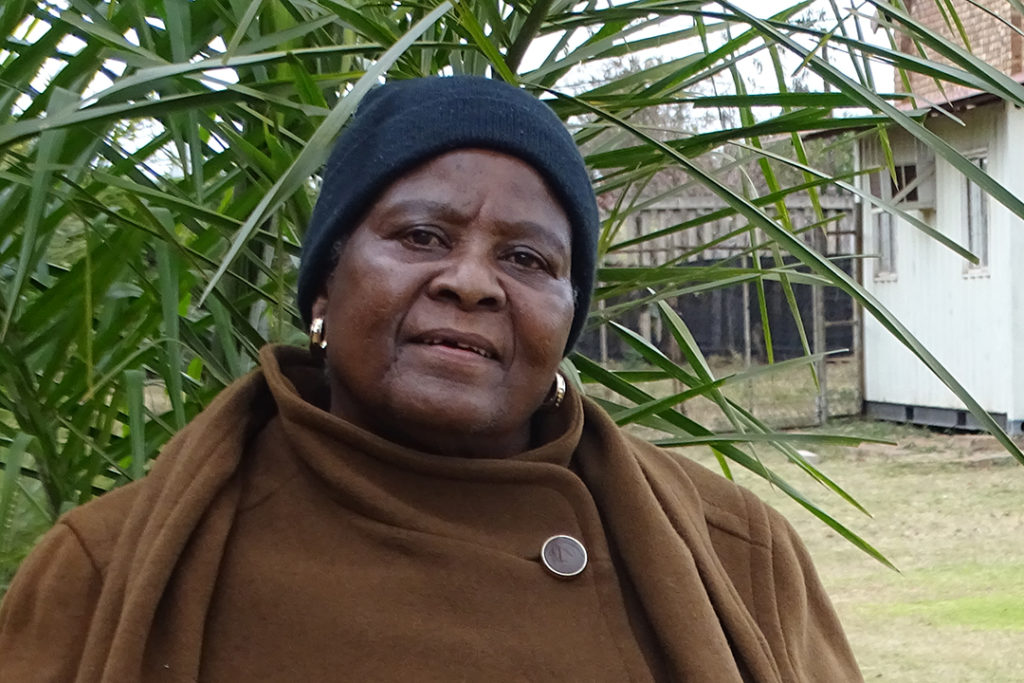
After some years spent in Ga Rankuwa, Chimeloane returned to Mamelodi and settled in Mahube Valley, then with her three children, in the house where she still lives today. “We lived far from St Peter Claver and on many days our children missed catechism classes. Several parishioners began to see how to start a new community. A Mexican Comboni priest, Fr Luis Carranza, also encouraged us to do so. By then I was a leader in the small Christian community,” Teresa recalls.
Baba Mahlangu, now retired, after more than 30 years working as an accountant at Ford is also, like Teresa Chimeoane, one of the pioneers of St Daniel Comboni. “My aunt instilled in us the importance of going to church. That’s what I did with my four children and they are all still involved today.” His only son is a diocesan seminarian. He and his wife are happy with his choice.
St Daniel Comboni
The parish of St Daniel Comboni started in 2007. The Comboni community, along with parishioners, began to establish the first structures. The priest’s house, the hall, still used as church, and some classrooms for catechesis were built. The various groups and sodalities commenced to develop. “People are very welcoming and about 200 attend Mass every Sunday,” says Fr Jerome. According to Erich Stöferle, a German Comboni Brother, who joined the community recently and is involved in the maintenance of the mission, “as lockdown was lifted, people came back to church when the choir started singing again”. The parish sodalities and six of the nine small Christian communities are already functioning as before the pandemic. Seventy-five catechumens are preparing for baptism, “a good number for a small community like ours”, says the parish priest.
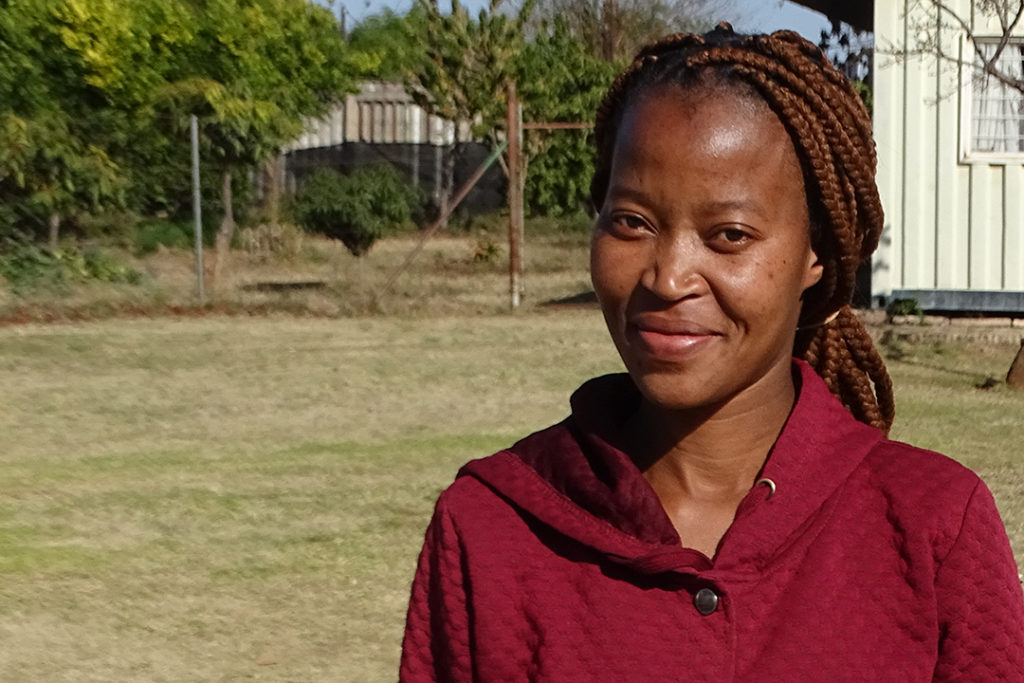
Young people
Forty per cent of the Mass attendees are people under 30. They are also beginning to reorganise themselves. Ivonne Moswane is one of their leaders. Originally from Mashabela, in Limpopo, Ivonne, 27 years old, arrived at St Daniel Comboni in 2014. She grew up with her grandmother who introduced her to the Catholic faith. She studied civil engineering and is now completing her apprenticeship in plumbing. “Young people have many challenges, but they need to take responsibility. Many come from broken families and haven’t had someone who listens to them to help them heal their wounds”. Fr Jerome agrees: “In general, family life is in a deep crisis; there are many single mothers and very few structured traditional families. Most marriages are short-lived and children end up living with grandparents or relatives. Young people are hooked by modern culture, music, parties, fun— ‘we are free’, they say, ‘we know what we want’”.
“Young people have many challenges, but they need to take responsibility”, says Ivonne
Ivonne sees music and dance among the most remarkable talents of Mahube’s young people. “Many don’t get into university after high school and stay at home doing nothing. Others turn to drugs or alcohol and to finance it, they steal”. Teenage pregnancy, domestic or sexual violence and dropping out of school are also challenges affecting young people. Ivonne recognises that there are also positive stories, such as the case of Mpho (not real name), who quit drugs and now teaches young people, through talks and sport, how to beat drugs.
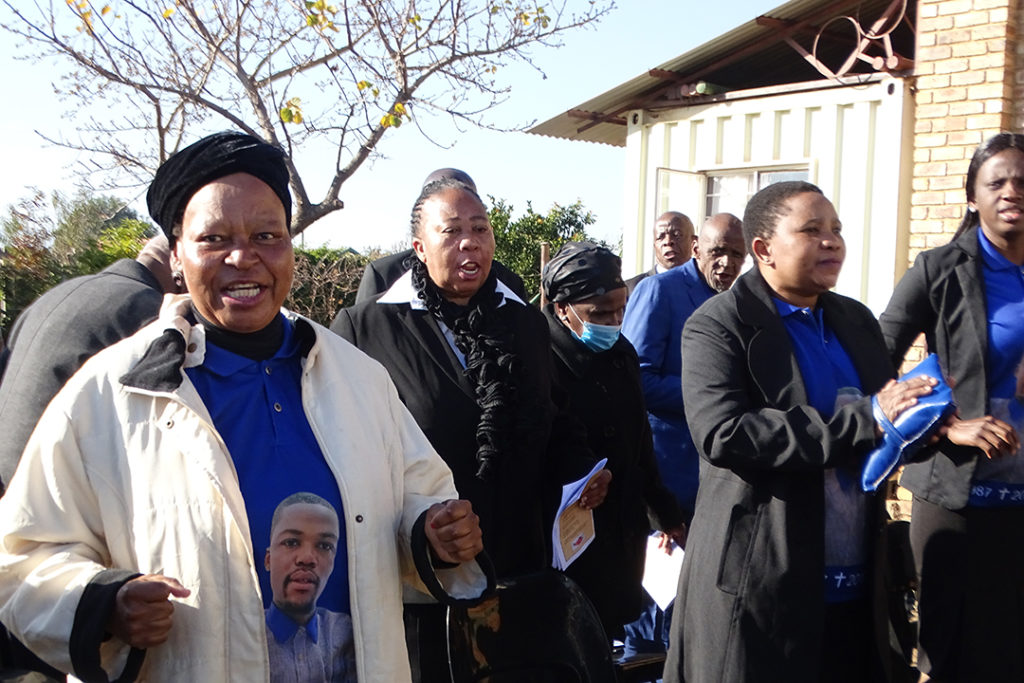
Credit: Worldwide.
“I am trying to regroup the young people again, bring them closer to the parish and get them off the streets; to resume our programme ‘the soup route’ in which we go around the neighbourhood and offer soup and bread to the needy”, comments Ivonne, who offers her gratitude to the Comboni Missionaries. “I met them in Limpopo, and from them I learned that it is more important to give than to receive. I love going to the church; there I find mental serenity and security. I have my vis-a-vis with God.”
She dreams of having a family. “I want to grow spiritually and make a positive contribution to the community”. She would like to see young people maturing with an open mind, a vision and mission which makes them participants in their own personal growth, in the Church and in the community at large.
Comboni Sisters
The Comboni Sisters live in the neighbourhood, a fifteen-minute walk from the Comboni Missionaries’ house. They arrived in Mahube in 2010. Among their pioneers was Sr Tsehaitu Hagos, originally from Asmara, Eritrea. She had previously worked 20 years in Colombia and Ecuador. “I was told so many things about South Africa before I arrived, about the violence, etc., but I met good people here in Mamelodi, neighbours who protect and help us”, says Sr Tsehaitu. Many come to visit her. They share their difficulties and joys and ask for prayers. “People trust you when they see that you come close to them. ‘You live with us and you look happy. Thank you!’, they say. Our presence is important for them and for us”.
“I would like our parish to be missionary, to reach out to many who are still far away”, says Fr Jerome
Two sisters from Latin America have recently joined the community. Sr Maria Cristina Ibarra, from Mexico, who has worked in Mozambique, South Sudan and in various missions of her country. Recently, she has been chosen by the Diocese of Pretoria as catechetical co-ordinator. “It is a challenge for me, since I also want to be with the people in the settlements”. On arrival in South Africa, she was struck by its contrasts, “a modern airport and highways just outside Johannesburg to the shanty houses a few minutes away as you approach the township. It’s another image of Africa that shocks you; very different from the rural areas of other countries where I’ve worked before”, says Sr Cristy, as she likes to be called.
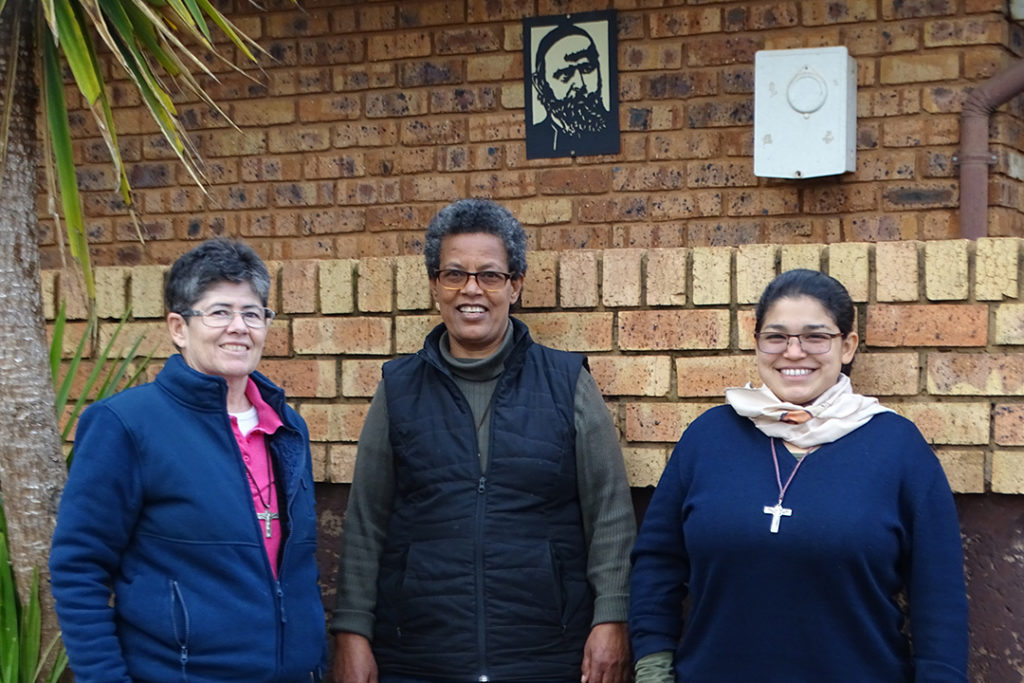
The third member of the community is Sr Marta Vargas, a jovial Costa Rican from the capital, San José, who professed her first temporary vows a few years ago. She has journeyed in her formation as a religious through Mexico, Ecuador and Egypt, where she learned Arabic. “I thought that after Egypt I would go to Turkey to work with refugees, but the community was not established and my superiors sent me to South Africa”. She has experience with young people, “I’m still young”, she laughs, and also with women and refugees in Cairo. “There, I discovered how our presence among the people, together with the Word of God, can enlighten anyone’s life, even when Christ cannot be explicitly proclaimed. I never thought of coming to South Africa; I always understood that it was a developed country”. She feels welcomed by the parishioners of St Daniel Comboni, by their neighbours and children, “it is a very beautiful place, in spite of the violence. I think that our presence as a Comboni family is fundamental as a way of living the mission”.
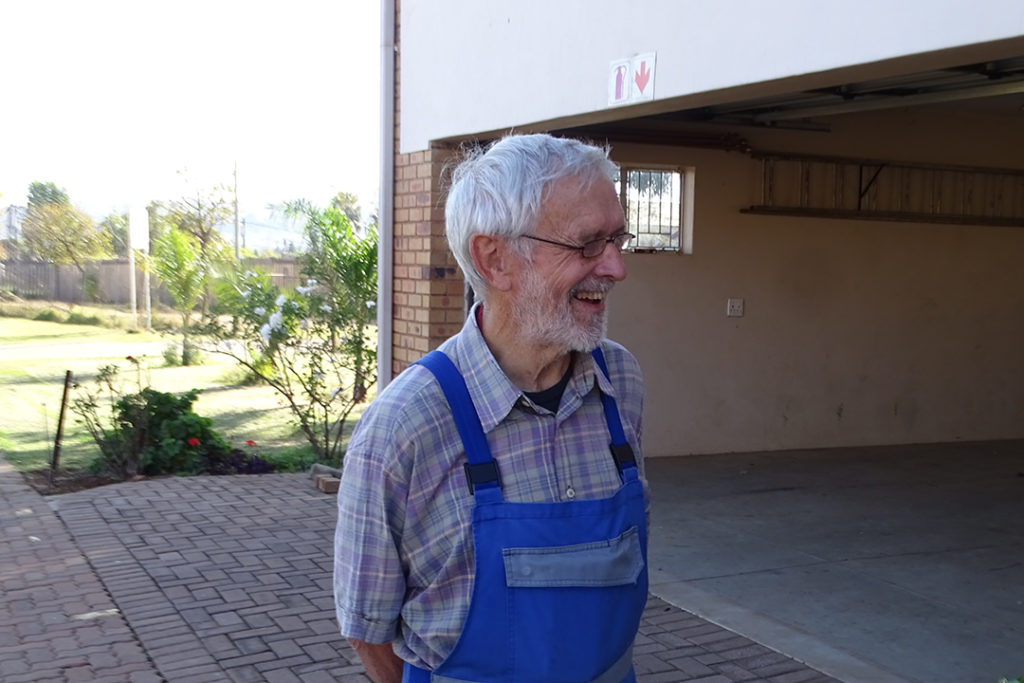
Sr Marta’s dream is to work with marginalised populations, such as refugees and women, to enter into their lives, to accompany them and to reach the informal settlements with a presence close to the poor. “Of course, I want to learn the local languages. Some older people don’t know English and young people feel more comfortable speaking their mother tongue”, says Sr Marta.
A missionary parish
Fr Jerome emphasises, “I would like our parish to be missionary, to reach out to many who are still far away. Two kilometres from the mission, there is an area where people are settling. We are not there yet”. As far as the parish social commitment, he considers that there is still a lot to do. “We have to organise our visits, registers and so on, but we already have two initiatives running, the delivery of about 10 kg of food to about 100 people and the distribution of blankets that have been donated to us. The community is attentive to those who do not have their basic needs covered, such as food and household needs. The choir has even donated goods to one of the elders. Mahube Valley is a mission in line with our Comboni charism, and the recommendations of our last Chapter, namely to reach out to the peripheries, as Pope Francis also often reminds us, carrying out a pastoral ministry that brings together social and faith aspects, creating living and mature missionary communities”. Although the government offers social assistance and technical education programmes, “Mahube Valley is a mission where the presence of religious brothers and sisters is important and significant”, concludes Brother Erich.

